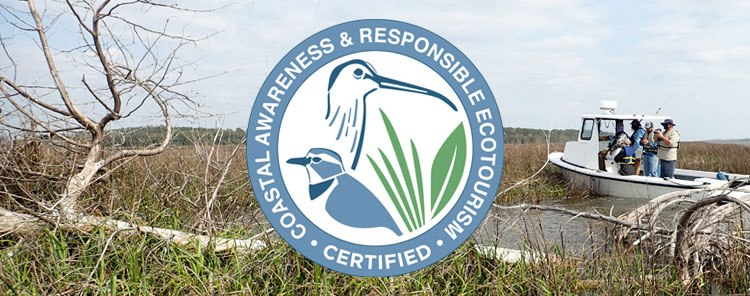Allie Hayser
SHOREBIRD BIOLOGIST, GEORGIA BIGHT SHOREBIRD CONSERVATION INITIATIVE

Stretching along more than 100 miles of barrier islands, beaches, and tidal marshes, Georgia’s coast is one of the most important shorebird habitats in the Western Hemisphere. Each year, it supports tens of thousands of migrating birds and numerous nesting species that depend on its dynamic landscapes to rest, feed, and raise their young. From Little Tybee Island to Cumberland Island and Pelican Spit, these beaches and offshore sandbars provide critical refuge, but they are also popular destinations for recreation and ecotourism. Balancing both worlds has become essential to protecting the wildlife that defines this coastline.
Over the past five years, the Coastal Awareness and Responsible Ecotourism (CARE) Certification Program has grown into a strong community of guides, captains, company owners, and naturalists who care deeply about Georgia’s coast and the wildlife that depends on it.

Launched through a collaboration among Manomet Conservation Sciences, UGA Marine Extension and Georgia Sea Grant, and the Georgia Department of Natural Resources, CARE is designed to connect ecotourism with conservation. Its aim is to help those leading trips on the water share accurate and up-to-date information, recognize signs of disturbance, connect the public to conservation, and guide visitors in ways that protect shorebirds and other wildlife.
The program was co-created by Abby Sterling, Southern U.S. Shorebird Initiatives Director at Manomet, who continues to lead the program’s vision and partnerships. Allie Hayser, Shorebird Biologist for Manomet’s Georgia Bight Shorebird Conservation Initiative, serves as a facilitator, helping connect participants with coastal experts, field experiences, and ongoing conservation efforts across Georgia’s coast. Together, they coordinate CARE with Shannon Matze from UGA Marine Extension and Georgia Sea Grant, bringing together partners from across the coast to share expertise and strengthen community connections.
Since the first class in 2021, 77 people have completed the program, and 55 guides are currently certified across the coast. These guides represent kayak outfitters, charter captains, ecotourism guides, island managers, and educators who have woven conservation into the experiences they offer to thousands of visitors each year. Collectively, this growing network has reached over an estimated 31,835 people with CARE content and contributed over 500 hours of professional development and service each year toward the stewardship of Georgia’s coast. One guide even shared that, in a single season, their tours welcomed visitors from 25 different states, a reminder of how far these best practices and knowledge can reach.
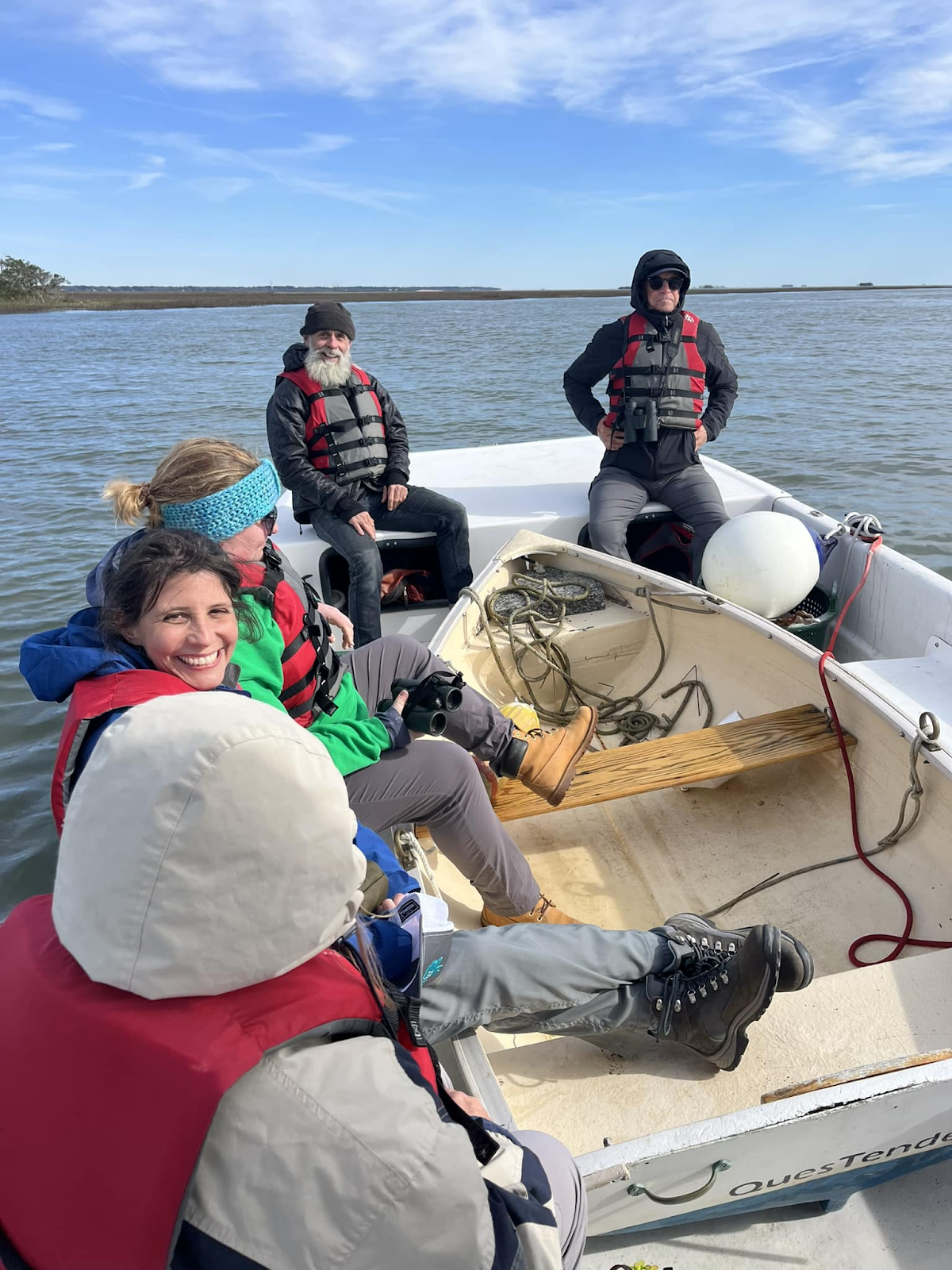
A Shared Purpose
Each year, we offer the Coastal Awareness and Responsible Ecotourism (CARE) Certification, a five-week blended learning course developed to build a shared understanding of Georgia’s coastal ecology, wildlife, and responsible tourism practices. The program was first created to bridge the gap between recreation and conservation by giving guides and ecotourism professionals the tools to recognize and reduce disturbance to shorebirds and other sensitive wildlife while improving visitor experiences.
The course runs annually from February through March and combines self-paced online lessons with weekly live discussions featuring coastal professionals from across Georgia. Each session highlights a different aspect , from coastal ecology and shorebird conservation to community connections and ecotourism ethics. It concludes with an in-person boat and field trip day, where participants put their new skills into practice and receive their certification.
In January, we also host our Annual CARE Recertification Dinner, bringing together all past participants, course speakers, and program partners for an evening of creating connections and celebration. Thanks to grant support, the evening includes dinner, time for networking, updates on ongoing conservation projects, lightning talks from fellow guides, group discussions, and a keynote presentation. Participants share stories from their work, reflect on the meaning of CARE in their careers, and voice their commitment to the coast.
At this year’s gathering, held at the UGA Marine Education Center and Aquarium, guides spoke passionately about being part of Georgia’s conservation legacy where historic protections have created a world-class ecotourism destination. They also highlighted the growing pressure as development and tourism increase, especially in recent years. One guide spoke about kayak tours to Little Tybee, a hotspot for nesting, migrating, and wintering shorebirds, saying, “the birds guide what we are doing; they choose where we land on a tour with the group.” Another reflected on what makes the region special, Georgia is a “super life-filled coast” – a place where the landscape feels vibrant and full, unlike many other coastal destinations.
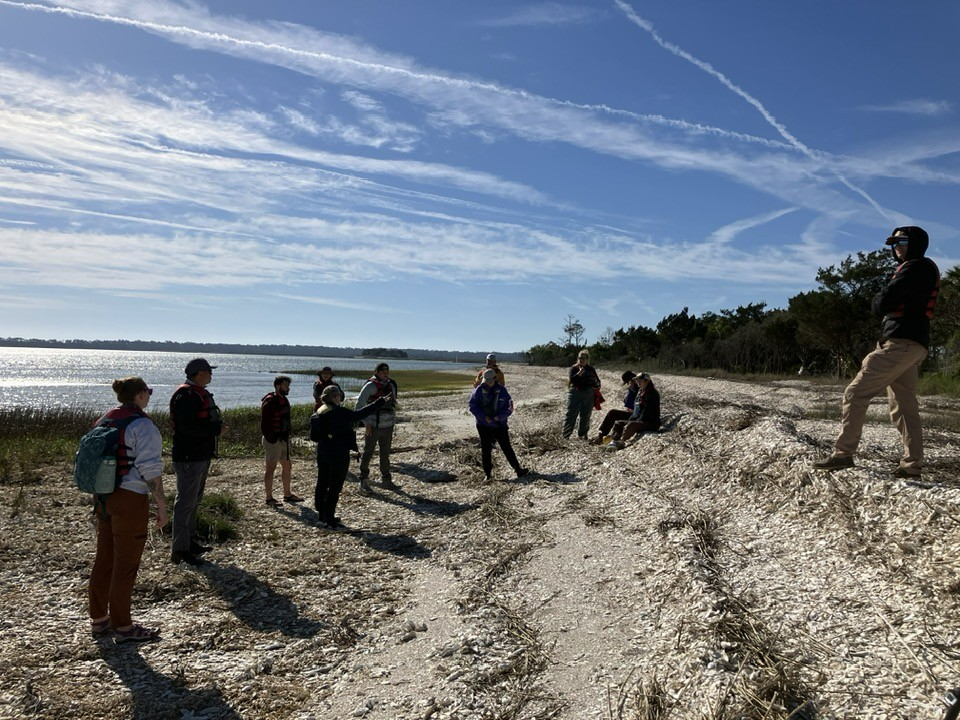
One of the long-standing local company owners shared something that stayed with everyone in the room: “I feel responsible for the wave of people coming to the coast, new guides to train, and visitors to educate. It takes a long time to truly train a guide, but CARE helps instill best practices and connections with communities. It takes a lot of the pressure off of the business for training a responsible guide.”
Another company owner nodded in agreement, saying, “We are all on the same page, so grateful for this community.” That was the general consensus at every table in the room.
Guides shared stories about reading nature’s signs, noticing the abundance and diversity of wildlife, and appreciating the habitats as a whole. By the end of the evening, there was hardly a dry eye in the room. As Allie and Abby reflected afterward, the event showed that CARE had built “a community of guides and companies who feel a deep responsibility to take care of the places we love, that we share with others, and that we can protect together.”
That sense of connection is at the heart of CARE.. Many guides now collaborate with one another on trips, share updates from the field with land managers and state partners, and even coordinate on community events. Some volunteer for shorebird surveys, stewarding programs, and education events, while others join panels and conferences to represent the ecotourism perspective in conservation efforts and management planning.
For recertified guides, the relationship with CARE doesn’t end at graduation. They continue to receive invitations to advanced workshops, conferences, and hands-on stewardship projects—opportunities that strengthen their expertise while helping protect the coastal habitats that shorebirds, and their own livelihoods, depend on.
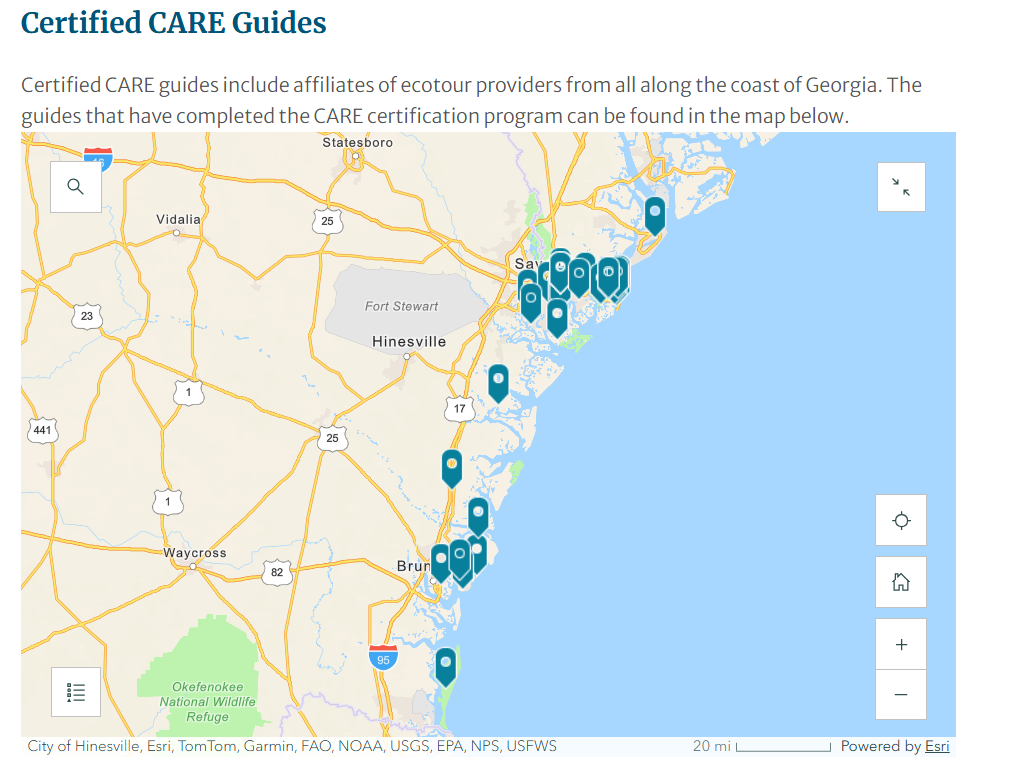 Last cohort:
Last cohort:
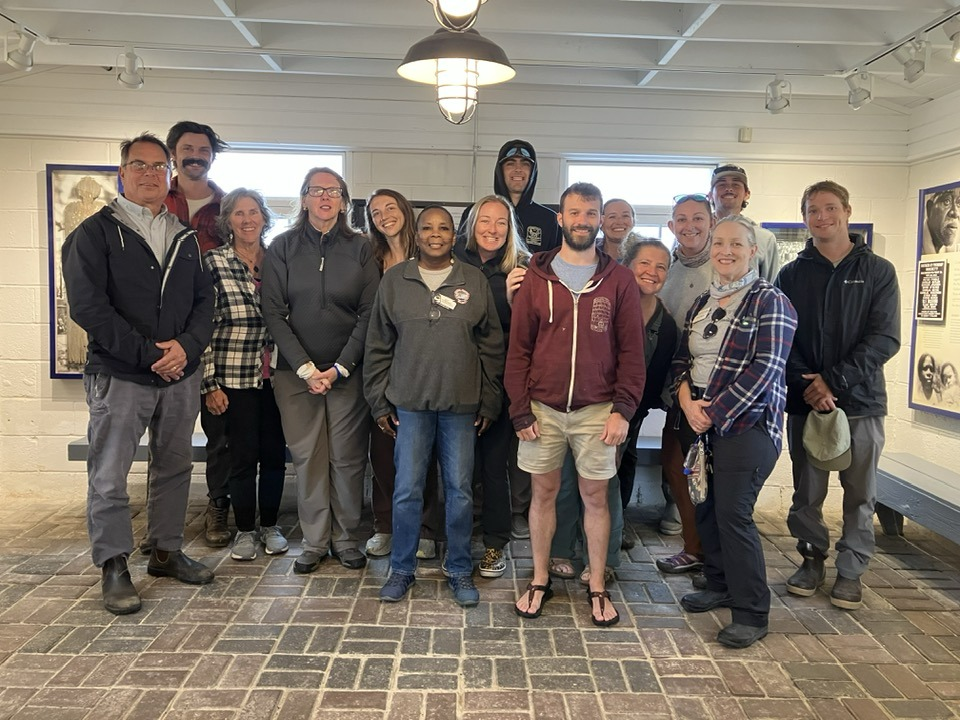





 Back to all
Back to all